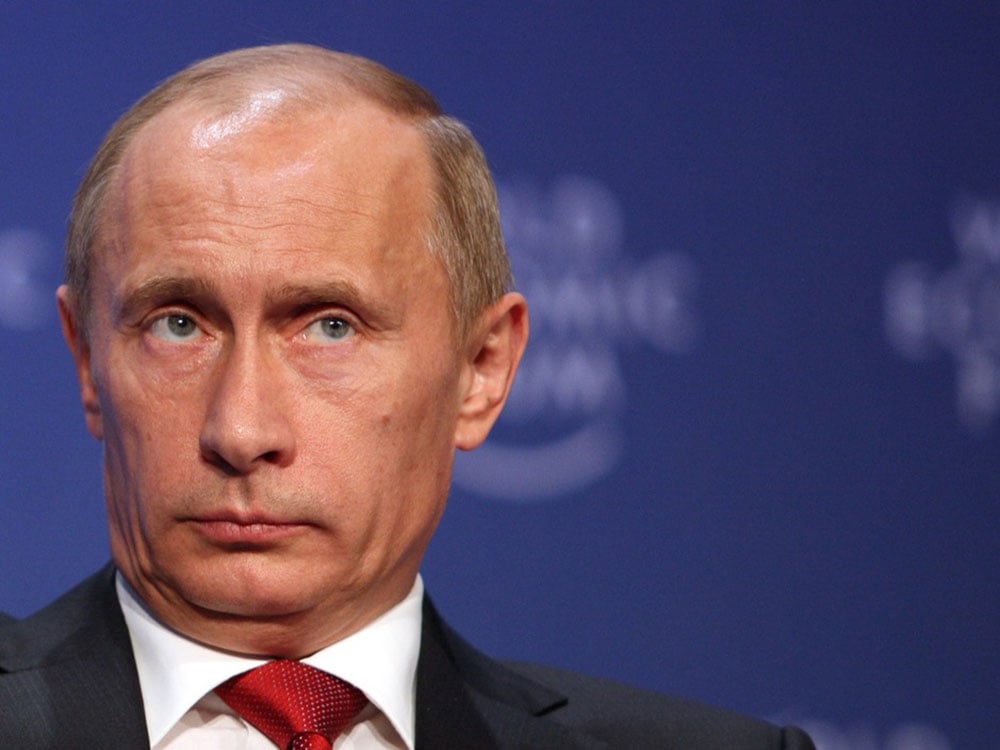Protecting Canada against Russian aggression requires an understanding of two simple facts. Russia poses a serious nuclear threat to Canada and the United States. And Vladimir Putin is not about to invade the Canadian Arctic.
First, the nuclear threat: In the event of a Russian strike against North America, the incoming missiles would overfly the Canadian Arctic, where radar stations would detect the threat and alert the U.S. military.
This early warning would allow U.S. land-based missiles in Montana, Wyoming, North Dakota, Colorado and Nebraska to be launched back at Russia before they could be destroyed in their silos by the Russian strike.
“Launch on warning” is a central element in nuclear deterrence, which is based on “mutually assured destruction.” Canada’s North Warning System — those Arctic radar stations, operated jointly with the U.S. military — is critical to that but urgently needs upgrading.
In the 1950s, the nuclear threat came from Soviet long-range bombers. These were soon joined by intercontinental ballistic missiles that could reach Toronto, Vancouver and other North American cities just fifteen minutes after being launched. Today, Russia is developing cruise and hypersonic missiles that, because they fly very low, would evade detection by existing radar systems while travelling across the Arctic to targets further south.
The decades-long debate about Canada joining U.S. ballistic missile defence is not relevant in the face of these new threats. That system is designed to counter the primitive missile systems of North Korea and Iran.
Instead, we need to help maintain mutually assured destruction by upgrading the North Warning System with “over the horizon” radar that can spot low-flying missiles. The Canadian government is moving in this direction, but now that Putin has broken the nuclear taboo — by threatening to use tactical nuclear weapons in Ukraine — the upgrades must be completed with urgency.
At the same time, Russia is not about to invade the Canadian Arctic, and so we should avoid wasting money and effort trying to protect against that.
As Gen. Wayne Eyre, Canada’s chief of the defence staff, told the House of Commons Standing Committee on National Defence last month: “I see no real threat today to our territorial sovereignty, nor do I see one in the near future.”
Eyre’s assessment makes sense. Russia is the country with the largest land mass in the world and already owns half the Arctic. It is also one of the largest producers of oil, gas and many minerals. Russia has no reason to be interested in Canadian territory or natural resources.
Russia is also losing the war in Ukraine. Opening a second front in the Canadian Arctic is beyond the capabilities of its already overextended, badly battered military. Moreover, any intrusion into North America would elicit a joint response from all of NATO, including the United States.
The major Arctic security issues are all located in the European Arctic. Most of Russia’s naval and air power is based on the Kola Peninsula alongside the Barents Sea and Norway.
Russia’s nuclear submarines access the world’s oceans through the “Greenland-Iceland-U.K. gap,” and NATO forces are kept busy monitoring activity in that region. At a NATO conference three years ago, I spoke with the commander of the United States Second Fleet, who is responsible for naval security in the North Atlantic. He told me then that Russian submarine activity near Norway was comparable to what he saw when serving on a U.S. attack submarine in the latter part of the Cold War.
Fortunately, Canada can help here. Our Halifax-class frigates were designed for anti-submarine warfare in the North Atlantic, as are the brand-new CH-148 Cyclone maritime helicopters that serve on them. Our Lockheed CP-140 Aurora patrol aircraft were designed for the same mission. We also have an almost unique ability to observe the entire North Atlantic and Arctic from space, thanks to RADARSAT Constellation: three “synthetic aperture radar” satellites that can see at night and through clouds.
We do need to replace the Aurora patrol aircraft, which are four decades old, as well as RADARSAT Constellation, which was launched in 2019 and has an expected lifespan of just seven years. But we should not pretend that these, or any other military procurements, are needed to protect against a Russian invasion of Canada.
Russia is an existential threat, but our Arctic sovereignty is secure. It is important to focus on the missions that matter — helping the United States with early warning and supporting all our NATO allies in the European theatre, from Norway to Ukraine.
This article is based on recent testimony by Michael Byers to the House of Commons Standing Committee on National Defence. ![]()
Read more: Politics

















Tyee Commenting Guidelines
Comments that violate guidelines risk being deleted, and violations may result in a temporary or permanent user ban. Maintain the spirit of good conversation to stay in the discussion.
*Please note The Tyee is not a forum for spreading misinformation about COVID-19, denying its existence or minimizing its risk to public health.
Do:
Do not: